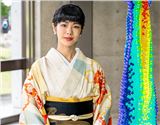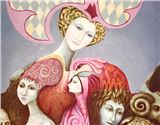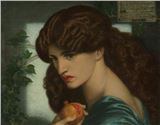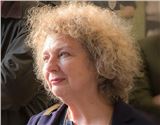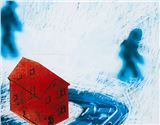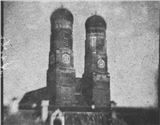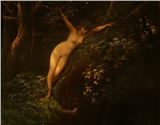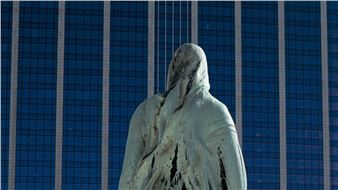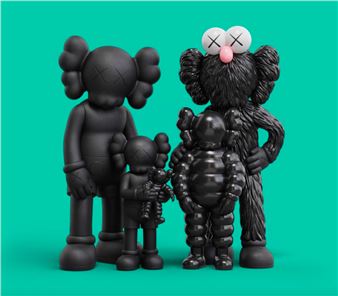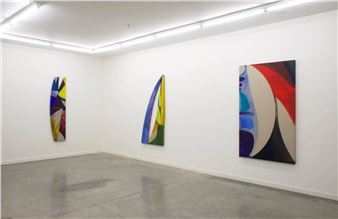Yoshua Ok├│n: 2007-2010
Among the works included in the exhibition are Bocanegra (2005-2007), in which Ok├│n collaborated with a group of Nazi enthusiasts who dressed up in vintage uniforms and were recorded in a variety of orchestrated situations; Canned Laughter (2009), a simulation of a maquiladora (a factory on the northern border of Mexico) that "cans laughter," juxtaposing the spontaneity of emotion with the grim realities of contemporary industry; House Meister (2008), in which a man comes out of a mouse-hole-like opening in the wall and crawls on the ground hissing and growling; Hipnostasis (2009), a collaboration with Raymond Pettibon which explores the subculture of old hippies and beach bums from Venice Beach; and Rusos Blancos (White Russians) (2008), a collaboration involving a family and residents of a remote desert area in California who rehearse performances for invited spectators. No Blog Yoshua OkonYoshua Okon was born in Mexico City and currently lives and works in Mexico City and Los Angeles. While his primary medium is video, Ok├│n considers himself a performance artist, as his work documents invented scenarios created for the camera in collaboration with invited participants. Interested in the tension between artificiality and the hyper-reality, Ok├│nÔÇÖs work reveals the dissolution of the boundaries between public and private, external and internal that occurs once the camera is turned on. In 1994, Ok├│n and Miguel Calderon founded the internationally acclaimed ÔÇ£La Panader├¡a,ÔÇØ a vibrant, non-profit, artist-run space in Mexico City that has become a model throughout Latin America.
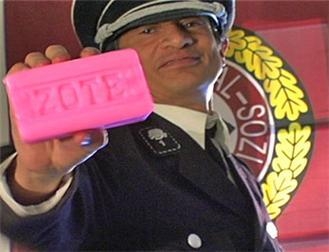
Recommended for you
Among the works included in the exhibition are Bocanegra (2005-2007), in which Ok├│n collaborated with a group of Nazi enthusiasts who dressed up in vintage uniforms and were recorded in a variety of orchestrated situations; Canned Laughter (2009), a simulation of a maquiladora (a factory on the northern border of Mexico) that "cans laughter," juxtaposing the spontaneity of emotion with the grim realities of contemporary industry; House Meister (2008), in which a man comes out of a mouse-hole-like opening in the wall and crawls on the ground hissing and growling; Hipnostasis (2009), a collaboration with Raymond Pettibon which explores the subculture of old hippies and beach bums from Venice Beach; and Rusos Blancos (White Russians) (2008), a collaboration involving a family and residents of a remote desert area in California who rehearse performances for invited spectators. No Blog Yoshua OkonYoshua Okon was born in Mexico City and currently lives and works in Mexico City and Los Angeles. While his primary medium is video, Ok├│n considers himself a performance artist, as his work documents invented scenarios created for the camera in collaboration with invited participants. Interested in the tension between artificiality and the hyper-reality, Ok├│nÔÇÖs work reveals the dissolution of the boundaries between public and private, external and internal that occurs once the camera is turned on. In 1994, Ok├│n and Miguel Calderon founded the internationally acclaimed ÔÇ£La Panader├¡a,ÔÇØ a vibrant, non-profit, artist-run space in Mexico City that has become a model throughout Latin America.
Artists on show
Contact details


 ARTISTS
ARTISTS
